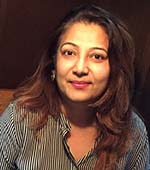Mum’s the Word
We bid adieu to the IB’s ‘old’ English course that ran till 2020. For those who had kids who were in this course and for educators who practiced it, the Part 1 topics included interesting titles – language and the individual, language and communities, language and power. Now that’s what many of us loved to explore – language in the regions, sub cultures, language profile / identity and interestingly disappearing and revival languages. Interestingly, all this learning now goes where as charity organizations have decided to play their hand of aces.
Does the name Oxfam ring a bell? More importantly, what’s the connection between Oxfam and the word ‘mother’ and ‘child’?
The name “Oxfam” comes from the Oxford Committee for Famine Relief, founded in Britain in 1942. The group campaigned for food supplies to be sent through an allied naval blockade to starving women and children in enemy-occupied Greece during the Second World War, moving on to become an international charity organization, as per their own description. Their job is, therefore, to end poverty and not be drawn into culture and language wars. It is common knowledge that language has the power to deconstruct and reinforce systems of power.
The subject at hand which has landed Oxfam in the eye of a storm is its egregious 92 page ‘Inclusive Language Guide’ which calls out English as the “language of a colonizing nation”, and tells its staff to avoid the words ‘mother’, ‘youth’,
headquarter’, which critics are now calling beyond parody, according to the Daily Mail.
And what is their reasoning? Surprise, surprise! ‘Mother’ is not an inclusive word. Their recommendations are to refer to women as AFAB (assigned female at birth) and AMAB (assigned male at birth), so as to include all people who aren’t
females to be a ‘mother’. So this means that we now refer to women with children as ‘Hi AFAM’ as opposed to Hi mom! This disheveled association of ‘mother’, makes this an assault, as the charity with elite shops on high street have
now decided to wipe out in a single stroke, how we look at our moms. Oops, sorry! We’re now expected to say ‘how we look at our AFAMs. This is about the opinions of some, vis-a-vis a strong imagery that pops into the inner corners of our brains when we think about the imagery associated with ‘mother’.
Maya Forstater, who founded a well known pressure group, accused Oxfam of abolishing the word mother. She questioned, ‘how is ignoring and denigrating the world’s mothers good for development? This guidance is trying to apply fashionable ideas about gender identity to people around the world who don’t think like this and are dealing with the ordinary problems men and women face every day.’ ‘But Oxfam seems to think what’s really important is erasing clear language about the very people who are most at risk. Their reasoning is that and I quote from the guide, “in patriarchal culture, social norms around gender result in designated roles for parents that reflect expectations of that gender. So, the suggestion is to drop these common nouns and instead pick up words like ‘parent’ or ‘parenthood’. Wait, that’s not all! Also, innocuous words, like ‘women’ and ‘children’ are now deemed derogatory by the guide. And may we ask why? Oh, says Oxfam’s guide, this is to reform the patriarchal view that women lack agency and are, therefore, as helpless as a child. Is this ‘woke’ moral high ground or the indoctrination of a culture joke being taken too far? What about the demand for unisex toilets when crimes against women are skyrocketing?
Can we just pause for a moment as Louis Armstrong croons to us:
I hear babies cry
I watch them grow
They’ll learn much more
Than I’ll ever know
And I think to myself
What a wonderful world
Yes, I think to myself
What a wonderful world
If we aren’t careful the word ‘mother’ and ‘child’ will become something from the
past and ‘Happy Mother’s Day may soon become an insult. Surprised?



Author Name : Susan Robertson
